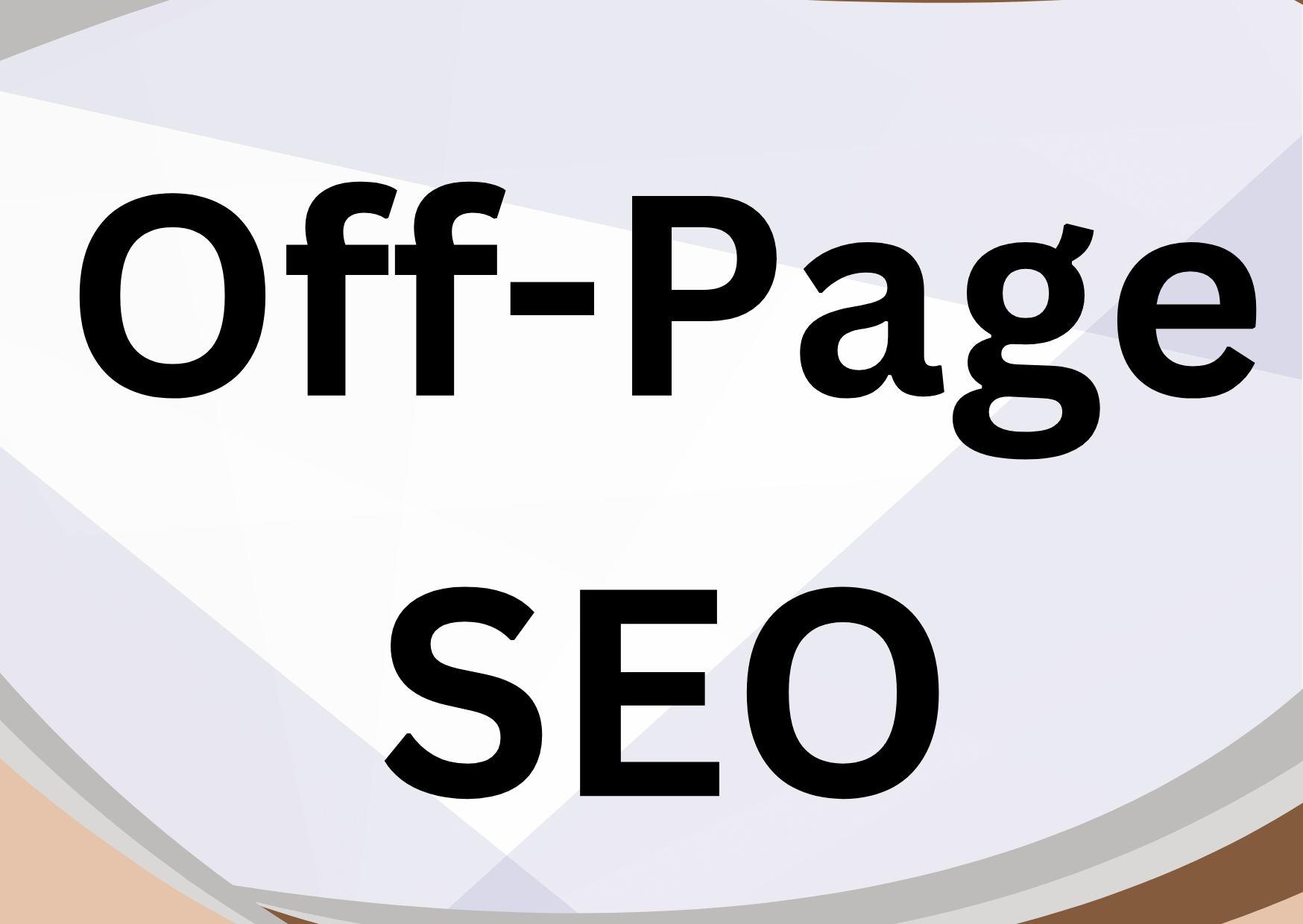Off-Page SEO
Off-page SEO, or off-site SEO, refers to techniques and strategies used to improve a website’s ranking on search engine results pages (SERPs) outside the boundaries of the actual website. Unlike on-page SEO, which focuses on optimizing elements within the website such as content, meta tags, and structure, off-page SEO is about enhancing the website’s reputation, authority, and relevance through external means.
Contents
- What is Off-Page SEO
- Link Building
- Social Media Marketing
- Brand Mentions
- Guest Blogging
- Influencer Outreach
- Forums and Community Engagement
- Content Marketing Beyond Your Website
- Why Is Off-Page SEO Important
- Best Practices for Off-Page SEO
- Avoid Black Hat SEO Techniques
- Create Shareable Content
- Engage with Your Audience
- Monitor and Analyze Your Efforts
- Stay Updated with Algorithm Changes
- Conclusion
Off-Page SEO
Off-page SEO, or off-site SEO, refers to techniques and strategies used to improve a website’s ranking on search engine results pages (SERPs) outside the boundaries of the actual website. Unlike on-page SEO, which focuses on optimizing elements within the website such as content, meta tags, and structure, off-page SEO is about enhancing the website’s reputation, authority, and relevance through external means.
What is Off-Page SEO?
Off-page SEO encompasses all activities outside your website’s confines to boost its search engine rankings. These activities are designed to create a favorable perception of your website and increase its credibility and authority in the eyes of both users and search engines.
Some of the most common off-page SEO techniques include link building, social media marketing, influencer outreach, brand mentions, and guest blogging. Let’s delve deeper into the components of off-page SEO.
Link Building.
Link building is often considered the cornerstone of off-page SEO. It involves acquiring backlinks from other websites to your own. Search engines, particularly Google, view backlinks as votes of confidence in your content. However, the quality and relevance of the backlinks matter significantly. Links from authoritative, trustworthy, and relevant websites carry much more weight than links from low-quality or unrelated sites.
There are several types of backlinks.
- Natural Links: These links are given without any direct effort from the website owner. For example, if a blogger finds your content useful and links to it, that’s a natural link.
- Manually Built Links: These are acquired through deliberate outreach efforts, such as contacting influencers or websites to request links.
- Self-Created Links: These are links you create yourself by adding your website to online directories, forums, or blog comment sections. However, overuse of self-created links can lead to penalties from search engines.
Social Media Marketing.
Social media platforms are powerful tools for off-page SEO. While social signals (likes, shares, and comments) may not directly influence search engine rankings, they help drive traffic to your website and increase brand visibility. Engaging with your audience on platforms like Facebook, Instagram, Twitter, and LinkedIn can amplify your content’s reach and potentially lead to more backlinks.
Brand Mentions.
Mentions of your brand, with or without a link, can contribute to your off-page SEO efforts. Search engines can recognize unlinked brand mentions and associate them with your website. These mentions indicate that your brand is being discussed and has a presence in its niche, adding to your website’s perceived authority.
Guest Blogging.
Guest blogging involves writing articles for other reputable websites in your industry. This not only allows you to reach a broader audience but also helps you earn high-quality backlinks. Guest blogging should focus on providing value to the target audience rather than solely aiming to acquire links.
Influencer Outreach.
Collaborating with influencers in your industry can significantly boost your off-page SEO efforts. Influencers have established trust and credibility with their followers, and their endorsement of your content, products, or services can lead to increased traffic, social shares, and backlinks.
Forums and Community Engagement.
Participating in forums and online communities related to your niche is another effective off-page SEO strategy. By providing valuable insights and linking back to your website when appropriate, you can establish yourself as an authority in your field and drive targeted traffic to your site.
Content Marketing Beyond Your Website.
Off-page content marketing involves creating and sharing high-quality content on platforms other than your website. This includes publishing infographics, videos, and articles on third-party platforms to attract attention and backlinks to your main site.
Why Is Off-Page SEO Important?
Off-page SEO is crucial for several reasons, all of which contribute to better search engine rankings, increased traffic, and enhanced online presence.
1. Improves Search Engine Rankings.
Search engines use off-page SEO factors, such as backlinks and brand mentions, as indicators of a website’s authority and relevance. Websites with strong off-page SEO signals are more likely to rank higher on SERPs. Higher rankings mean increased visibility, which can lead to more traffic and conversions.
2. Increases Domain Authority.
Domain authority (DA) is a metric developed by Moz to predict how well a website will rank on search engines. Off-page SEO plays a significant role in increasing your DA by building a robust backlink profile and fostering positive brand mentions. A higher DA signals to search engines that your website is a trusted source of information.
3. Enhances Brand Awareness.
Off-page SEO activities, such as social media marketing and influencer outreach, help increase brand awareness. When your content is shared widely or endorsed by credible influencers, it can attract a larger audience and establish your brand as a leader in its industry.
4. Builds Credibility and Trust.
A website with numerous high-quality backlinks and positive mentions is perceived as trustworthy and credible. This not only benefits your SEO efforts but also builds trust among potential customers, increasing the likelihood of conversions and repeat business.
5. Drives Referral Traffic.
Backlinks from authoritative websites can drive significant referral traffic to your site. Unlike direct traffic, referral traffic comes from users who click on links pointing to your site from other domains. This type of traffic is often highly targeted and more likely to convert.
6. Encourages Networking Opportunities.
Off-page SEO strategies, such as guest blogging and influencer outreach, involve building relationships with other professionals and businesses in your industry. These relationships can lead to collaboration opportunities, increased exposure, and mutual growth.
7. Supports Long-Term Success.
While on-page SEO efforts may yield quicker results, off-page SEO provides lasting benefits. A strong backlink profile and positive brand reputation can sustain high rankings and traffic levels over time, even as search engine algorithms evolve.
Best Practices for Off-Page SEO.
To achieve success with off-page SEO, it’s essential to follow best practices that align with search engine guidelines and provide genuine value to users:
Focus on Quality Over Quantity.
When it comes to backlinks, quality always trumps quantity. A few links from high-authority websites in your niche are far more valuable than numerous links from low-quality or unrelated sites.
Avoid Black Hat SEO Techniques.
Black hat SEO techniques, such as buying backlinks, participating in link schemes, or using automated tools to generate links, can result in penalties from search engines. Always adhere to ethical and sustainable practices.
Create Shareable Content.
High-quality, engaging content is more likely to be shared and linked to by others. Invest in creating content that provides value to your audience and solves their problems.
Engage with Your Audience.
Building relationships with your audience through social media, forums, and online communities can increase your off-page SEO impact. Active engagement fosters trust and encourages word-of-mouth promotion.
Monitor and Analyze Your Efforts.
Use tools like Google Analytics, Ahrefs, and Moz to track the performance of your off-page SEO efforts. Regular analysis allows you to identify what works and adjust your strategy accordingly.
Stay Updated with Algorithm Changes.
Search engine algorithms are constantly evolving. Stay informed about updates and trends in SEO to ensure your off-page strategies remain effective and compliant with current standards.
Conclusion.
Off-page SEO is an indispensable component of a comprehensive SEO strategy. By focusing on building high-quality backlinks, engaging with your audience, and fostering a positive brand reputation, you can improve your website’s visibility, authority, and credibility. While it requires consistent effort and patience, the rewards of effective off-page SEO are well worth it. By combining it with strong on-page SEO practices, you can create a robust online presence that drives sustainable growth and success.



